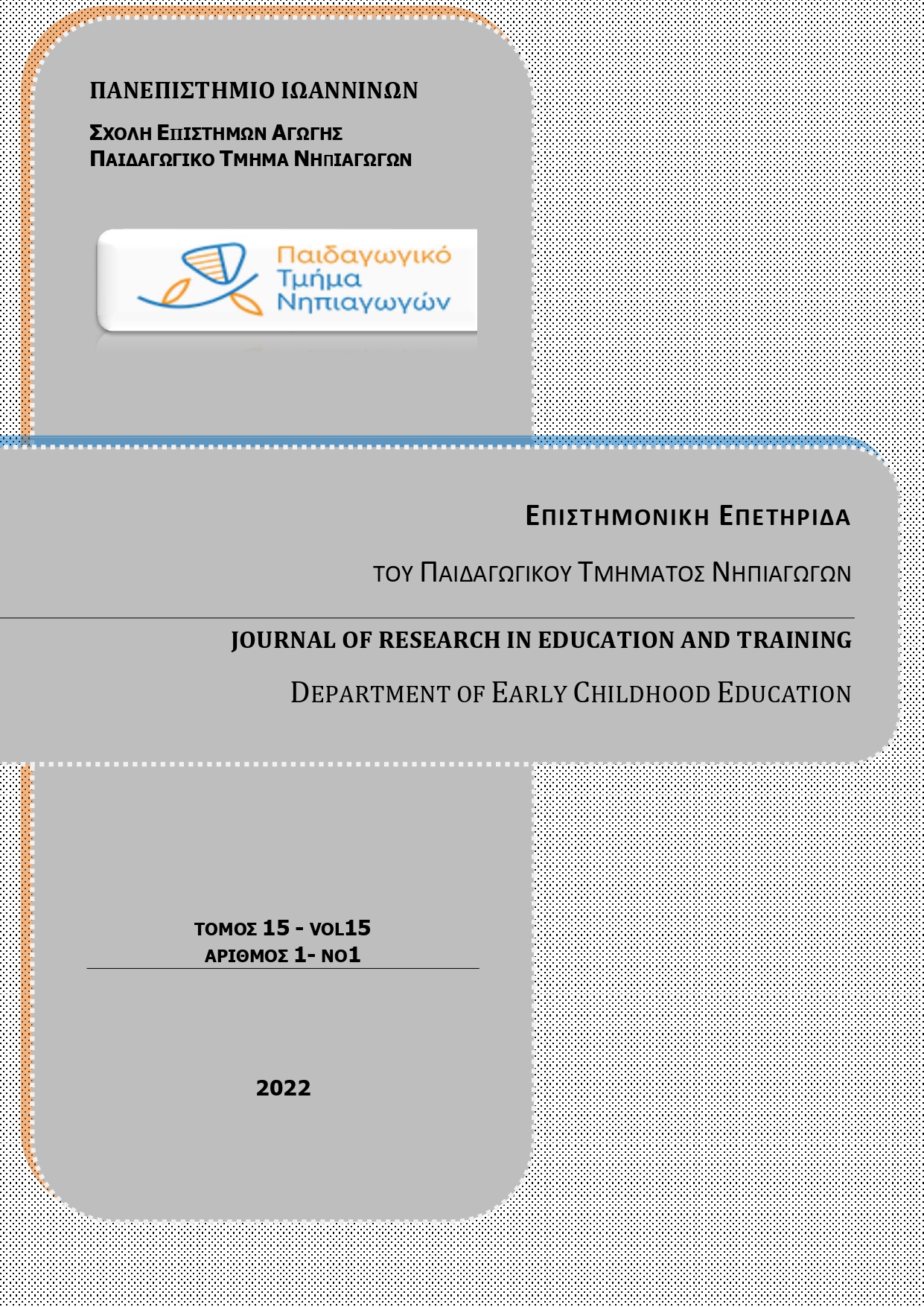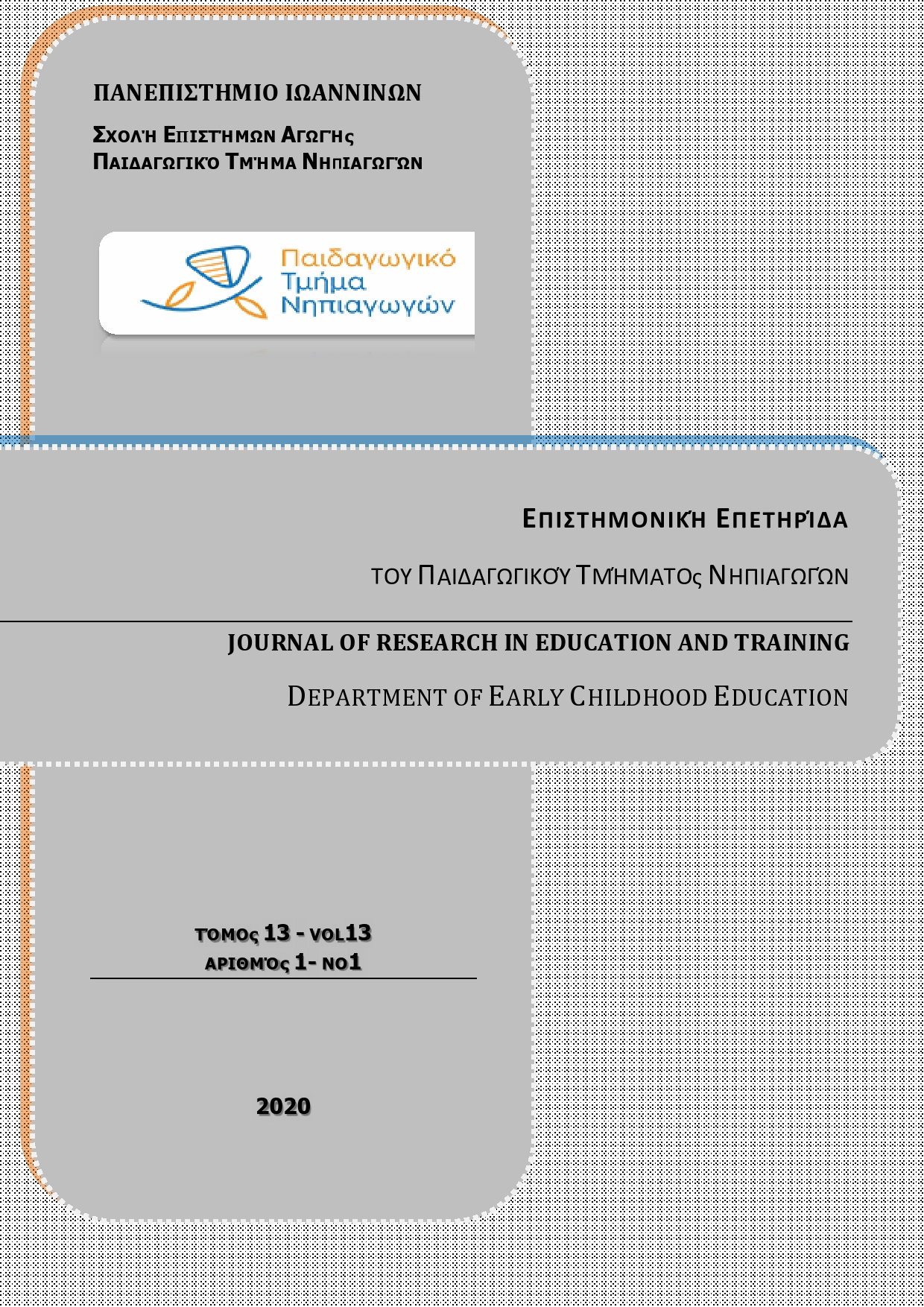The mask of personal protection as a cause of depersonification of the learners in format education εκπαιδευτική, κοινωνική και θεολογική προσέγγιση

Abstract
The purpose of the article is to highlight the factors affected by the use of the mask in special situations, like the one of the covid-19 pandemic. With the research of social, educational and psychological factors, evidence and conditions emerge, which deteriorate the psychic and social children’s life, studying in the formal education. The aim is to be understandable the significance of the person and his elevation in the modern educational and social reality, in an area where the use of mask is essential. The examination of the topics in this article follows the characteristics of the interdisciplinary approach. The article develops the consequences of using a protective mask in the educational, social and theological field. The approach is interdisciplinary, attempting to theoretically substantiate the issue, in order to lead to exploratory approaches to the issue within the scientific community. Therefore, this article does not refer to any research conducted by the authors, but the main interest is in structuring those factors that make the face mask a means of depersonalizing people, as a form of learned behavior, which is attempted to be acquired in the teacher environment. For this reason, this article is not presented structurally in the form of research presentation articles, quantitative or qualitative, but is developed as a theoretical research article in the field of paper review. During the covid-19 pandemic, the use of a mask interferes with the effective communication and teaching relationship, which can lead to depersonalization. The concealment of facial features has socio-emotional consequences which disrupt the interpersonal relationships of learners. The educator must perceive the learner as a “person” and focus on his development. The didactic act should be based on the treatment of the learners as individuals, a fact that will restore the balance and increase their adaptive capacity towards the threat of depersonalization.
Article Details
- How to Cite
-
Fykaris, I., Matiaki, V., & Geroulidou, D. C. (2022). The mask of personal protection as a cause of depersonification of the learners in format education: εκπαιδευτική, κοινωνική και θεολογική προσέγγιση. Journal of Research in Education and Training, 15(1), 105–131. https://doi.org/10.12681/jret.25668
- Issue
- Vol. 15 No. 1 (2022):
- Section
- Articles

This work is licensed under a Creative Commons Attribution-NonCommercial-ShareAlike 4.0 International License.
Authors who publish with this journal agree to the following terms:
- Authors retain copyright and grant the journal right of first publication with the work simultaneously licensed under a Creative Commons Attribution Non-Commercial License that allows others to share the work with an acknowledgement of the work's authorship and initial publication in this journal.
- Authors are able to enter into separate, additional contractual arrangements for the non-exclusive distribution of the journal's published version of the work (e.g. post it to an institutional repository or publish it in a book), with an acknowledgement of its initial publication in this journal.
- Authors are permitted and encouraged to post their work online (preferably in institutional repositories or on their website) prior to and during the submission process, as it can lead to productive exchanges, as well as earlier and greater citation of published work (See The Effect of Open Access).



